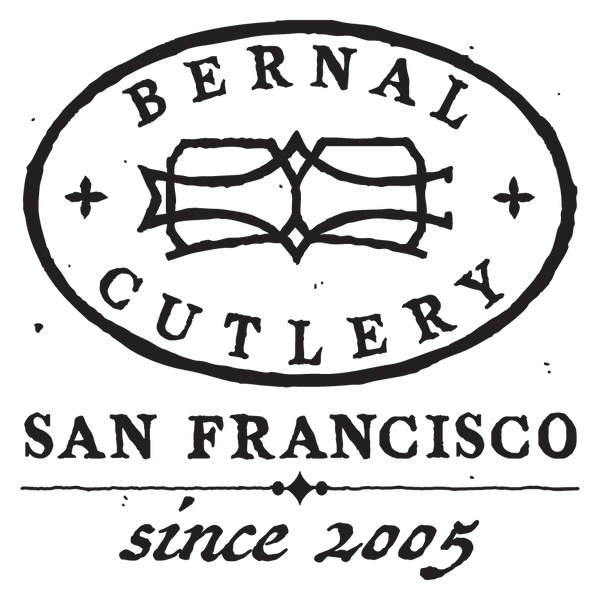-
Kitchen Knives
-
Bernal Cutlery House & Collaborations
- Greenfield Series
- Bernal Cutlery Black Label
- INVICTUS - K Sabatier | Butcher's Guide
- Nouvel Ideal - K Sabatier
- GS+ Ko Sabaki - Konosuke
- Small Chef - Rolin Knives
- Stainless Clad - Tosa Tadayoshi
- Knife Rolls - ILE
- Pizza Cutter - F+W | Prince
- Sakai Style - Blenheim Forge
- Sori Series - Sakai Kikumori
- Kurouchi - Nakagawa | Sakai Kikumori
- Shop by Use
- Shop by Shape
- Shop by Category
-
Shop by Maker
- Ashi Hamono
- Astral Works
- Au Nain
- Au Sabot
- AZ Knives
- Bernal Cutlery Manufactory
- Blenheim Forge
- Chazeau Honore
- Eichenlaub
- Florentine Kitchen Knives
- Friedr. Herder
- Gihei Knives
- Goyon-Chazaeu
- HADO
- Hatsukokoro
- Hitohira
- J Adams
- John Nowill & Sons
- K Sabatier
- Kaji Bei
- Kanehide
- Kenji Togashi
- Kogetsu
- Konosuke
- MAC Knife
- Masakane
- Morihei
- Mutsumi Hinoura
- Myojin Naohito
- Néron
- Naozumi
- Nigara Hamono
- Pallares
- Roland Lannier
- Rolin Knives
- Sakai Kikumori
- Satoshi Nakagawa
- Seki Kanetsugu
- Tagai Sanjo
- Tanabe Tatara
- Tosa Tadayoshi
- Tosa Tsukasa
- Tsukasa Hinoura
- Wakui
- Yoshikane
- Knife Storage
- Sayas & Guards
- Knife Care
- Trade In
- Bargain Bin
-
Bernal Cutlery House & Collaborations
- Knives & Tools
- Sharpening
-
Kitchen Tools
-
Shop by Brand
- Ambrogio Sanelli
- Andre Verdier
- Ateco
- Au Nain
- Chefs Press
- Due Buoi
- Dexter Russell
- F. Dick
- Geo Yukio Hattori
- Gestura
- Hardmill
- Hitohira
- Inside Line Equipment (ILE)
- Jones Cutting Boards
- Kagetsu Donabe
- KYOTOH Donabe
- Kuramoto
- Lancaster
- Lundy Way
- MAC Knife
- Made In
- Netherton Foundry
- Noda Horo
- Nordic Ware
- Pallares
- Peugeot
- Prince
- Silky
- SILPAT
- Shop by Use
- Cookware by Material
- Cookware by Type
- Prep Tools
- Cutting Boards
- Utensils
- House & Kitchen Scissors
- Softgoods
- Chef's Press
- Cleaning Supplies
-
Shop by Brand
- Tableware
- Vintage
- Pantry
- Books & Gifts
- Services & Info
or
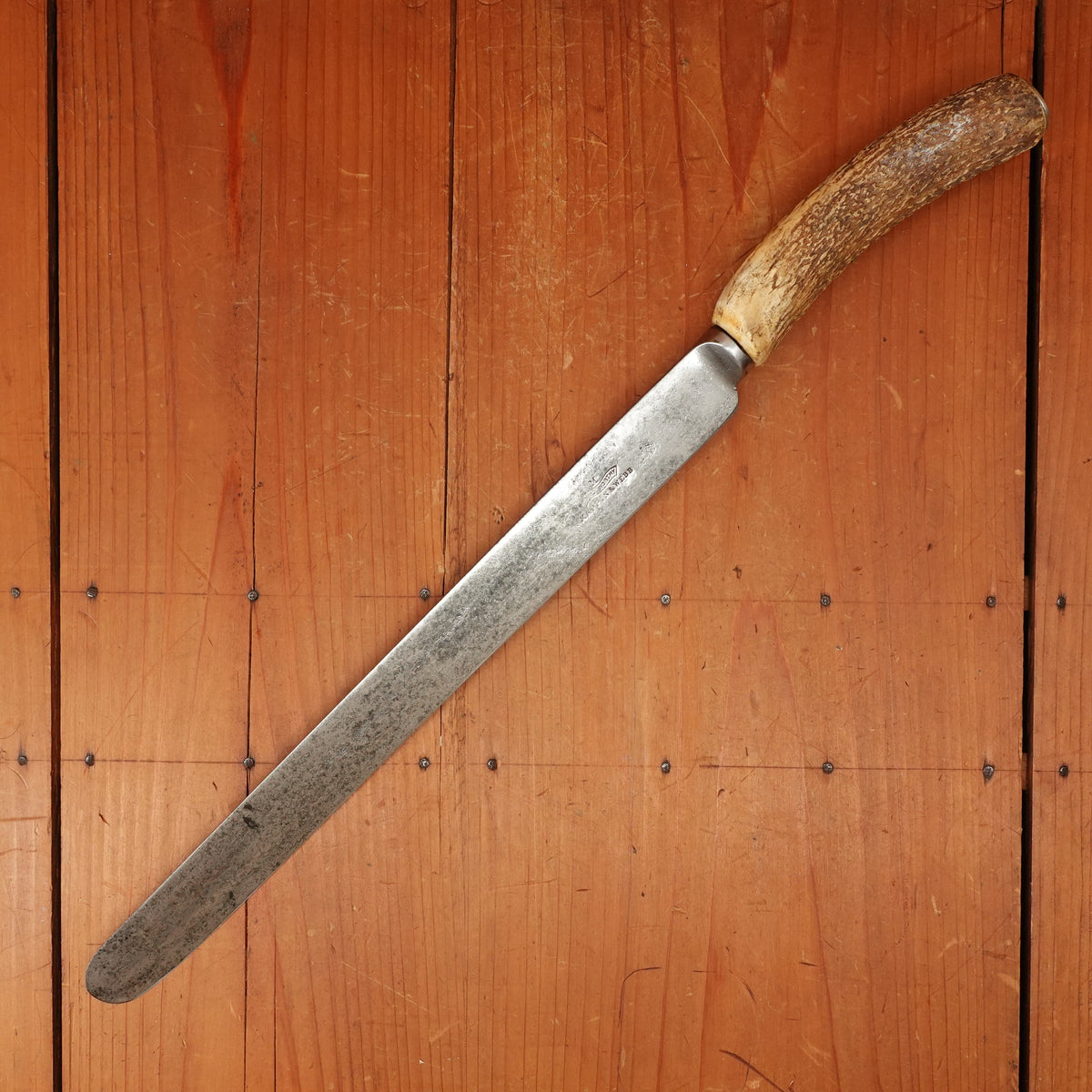
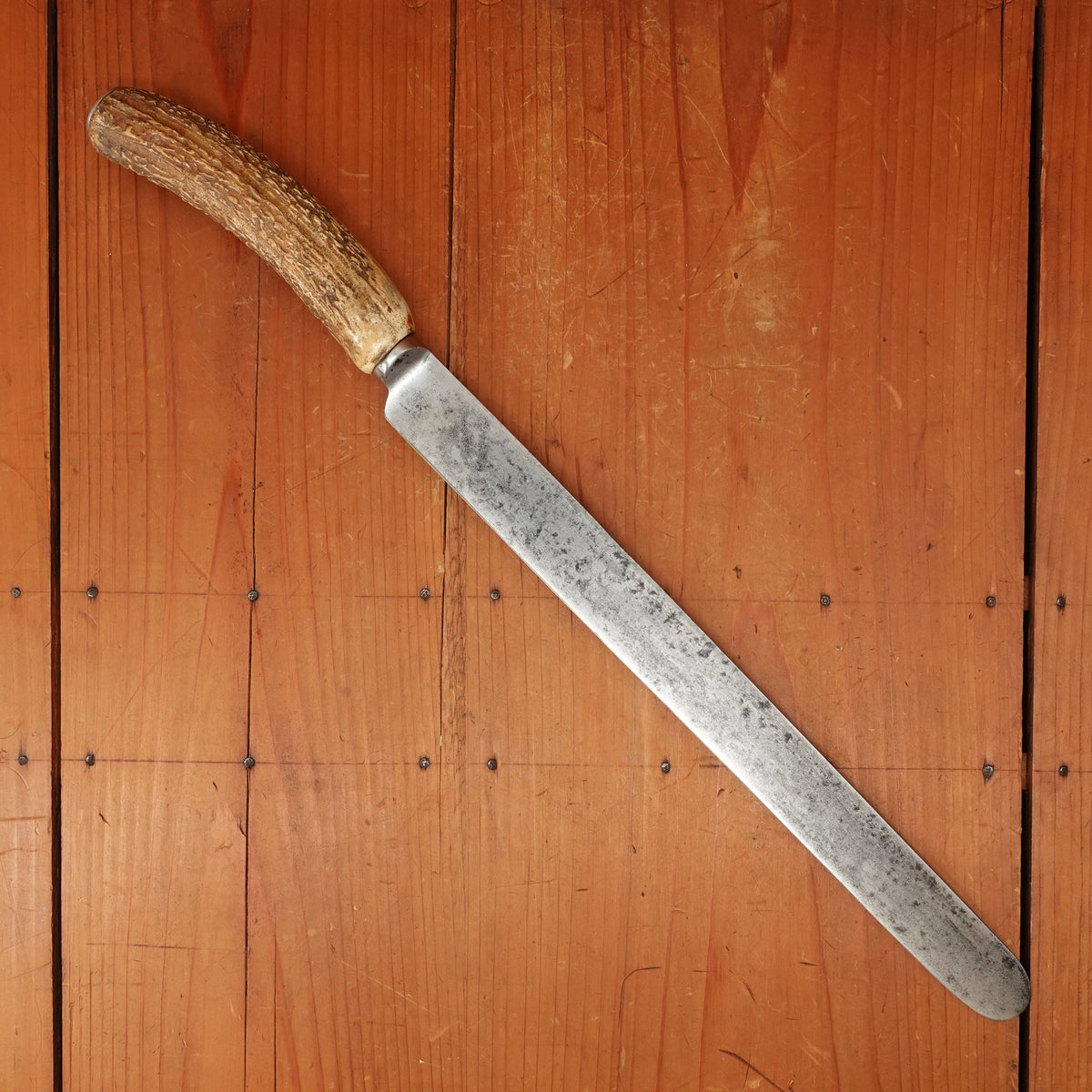
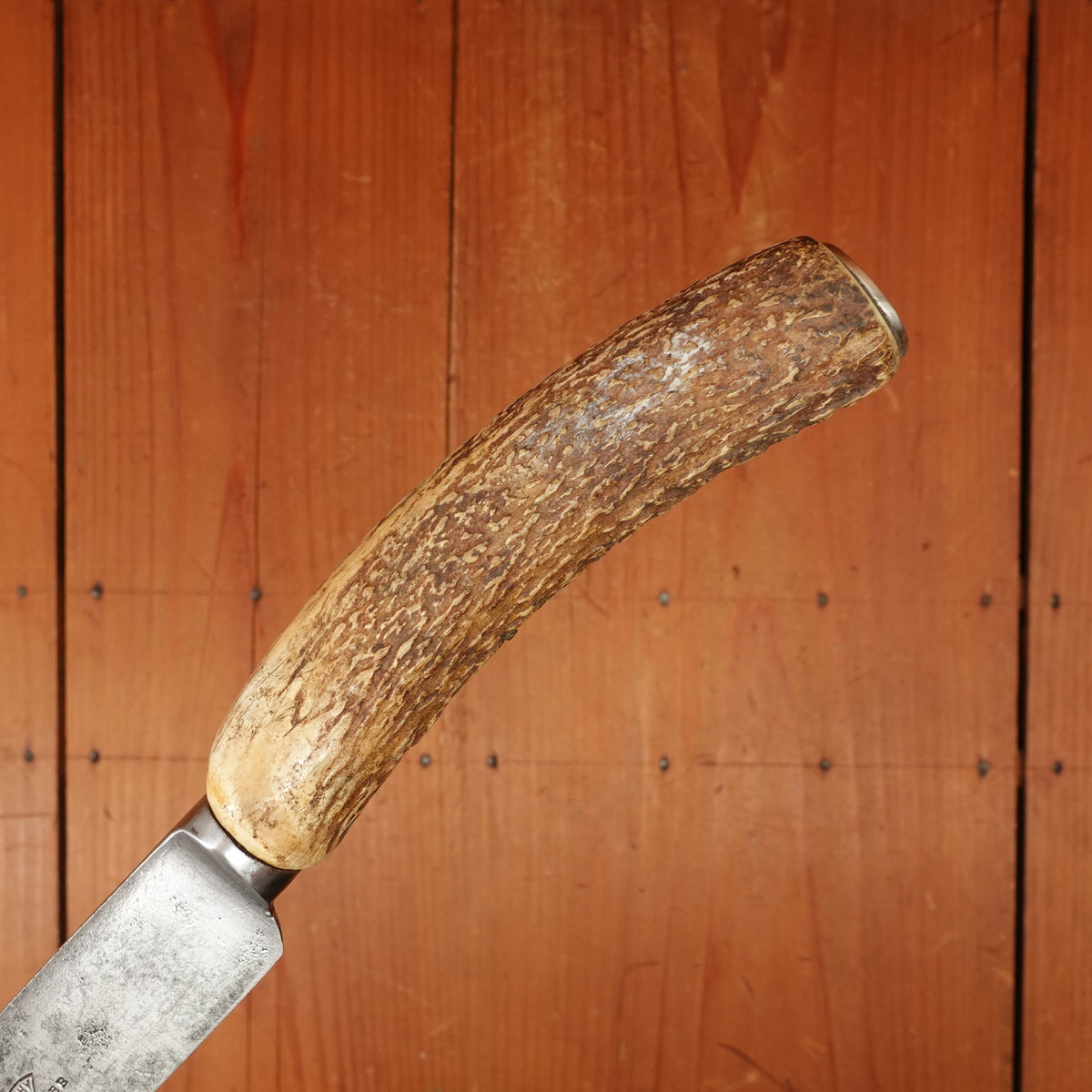
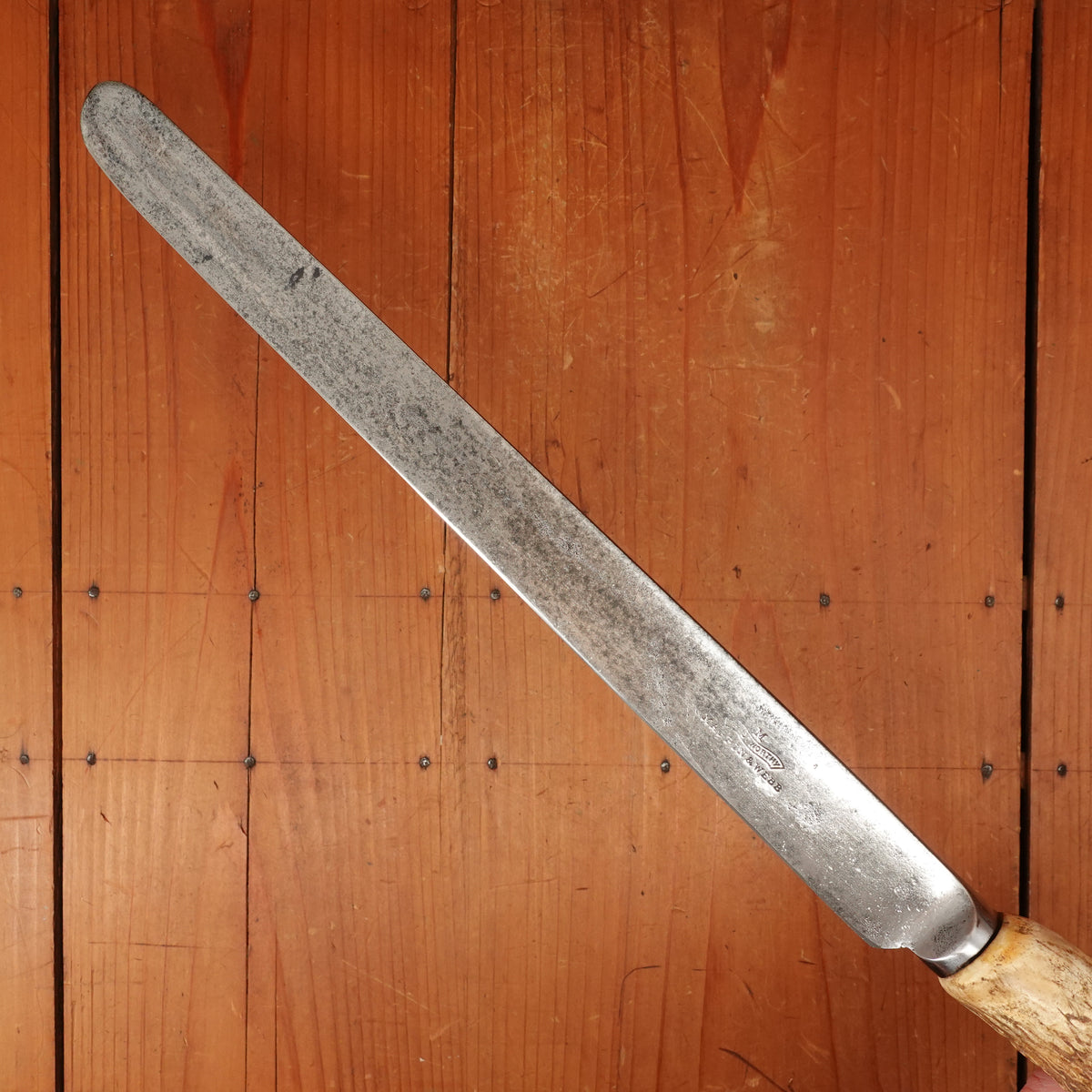
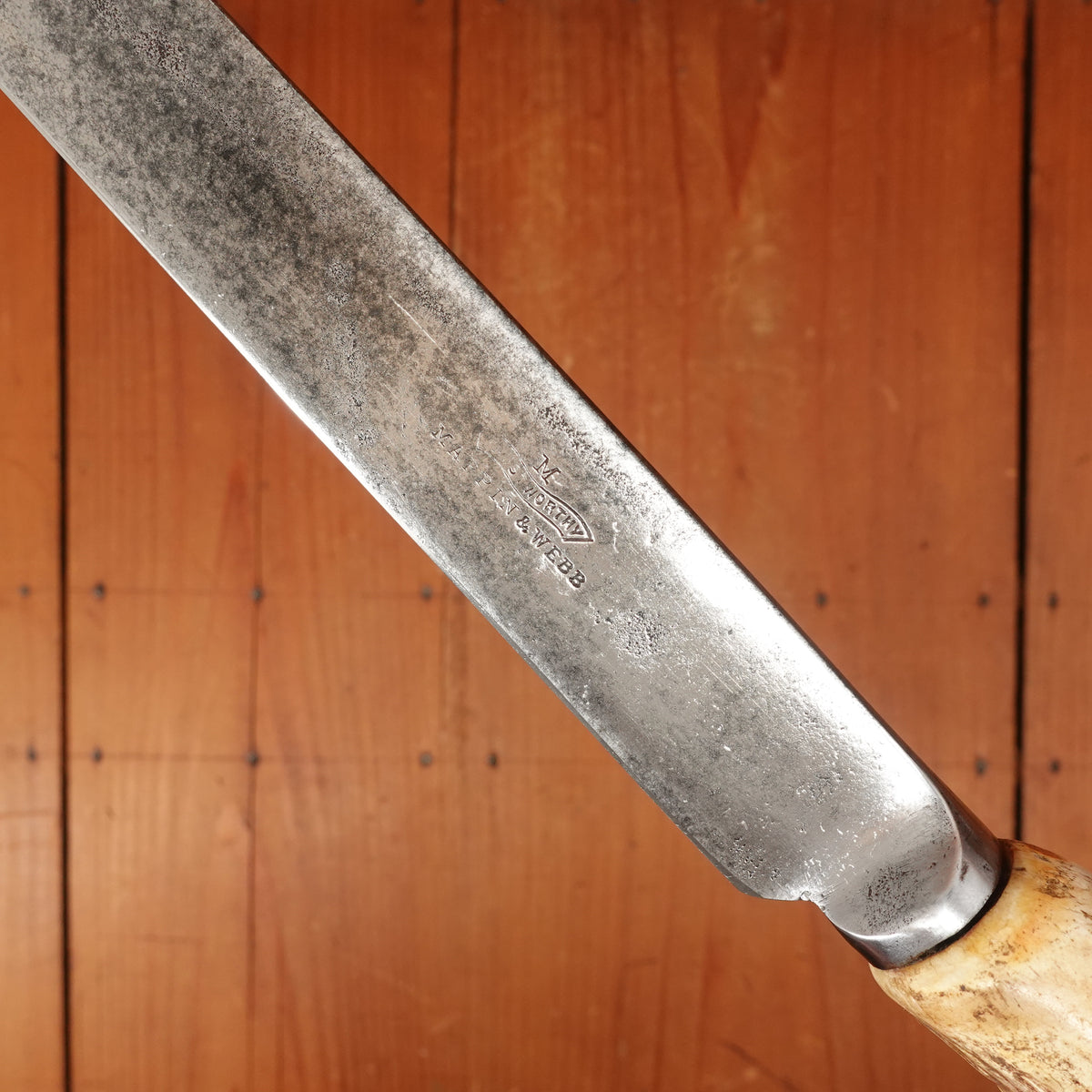
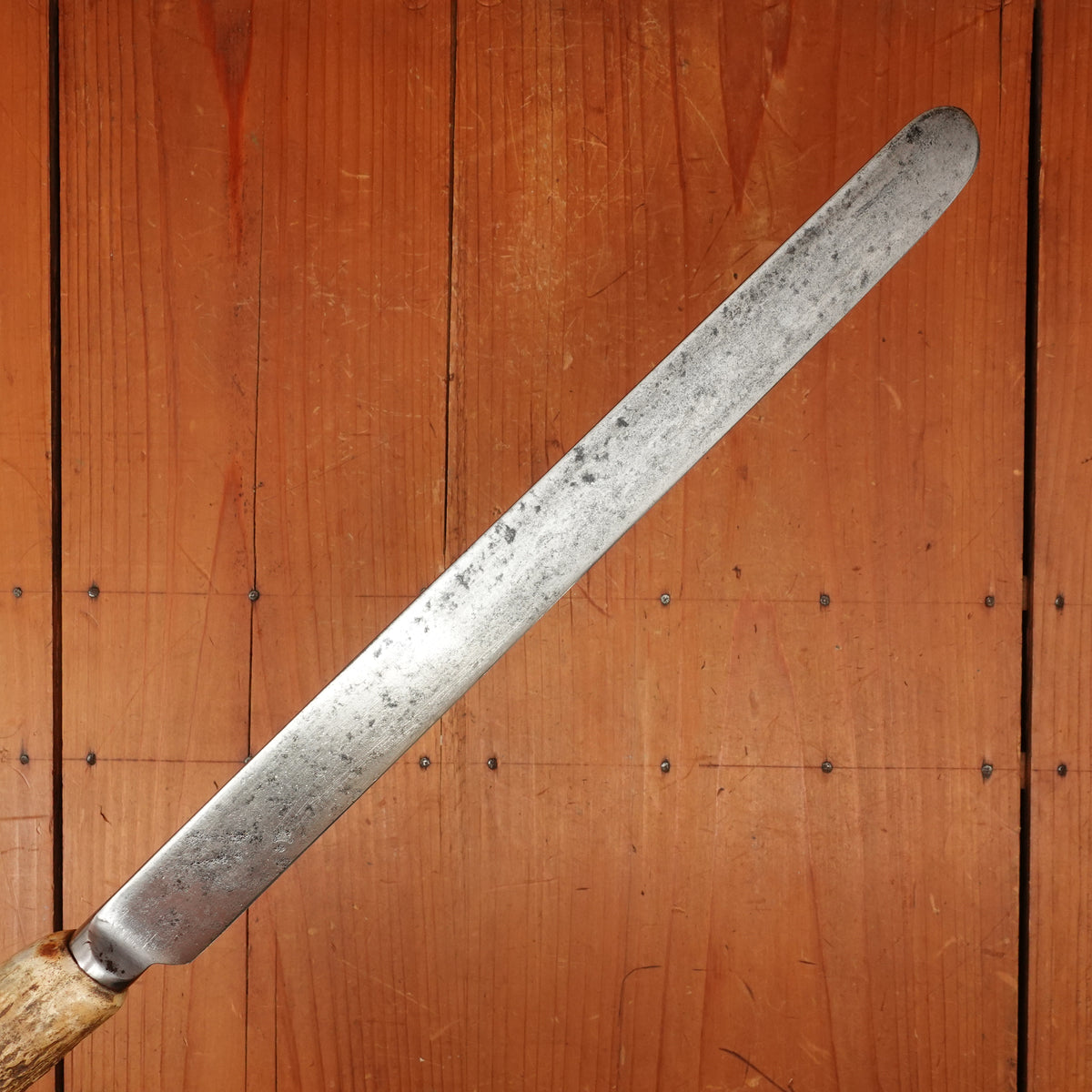
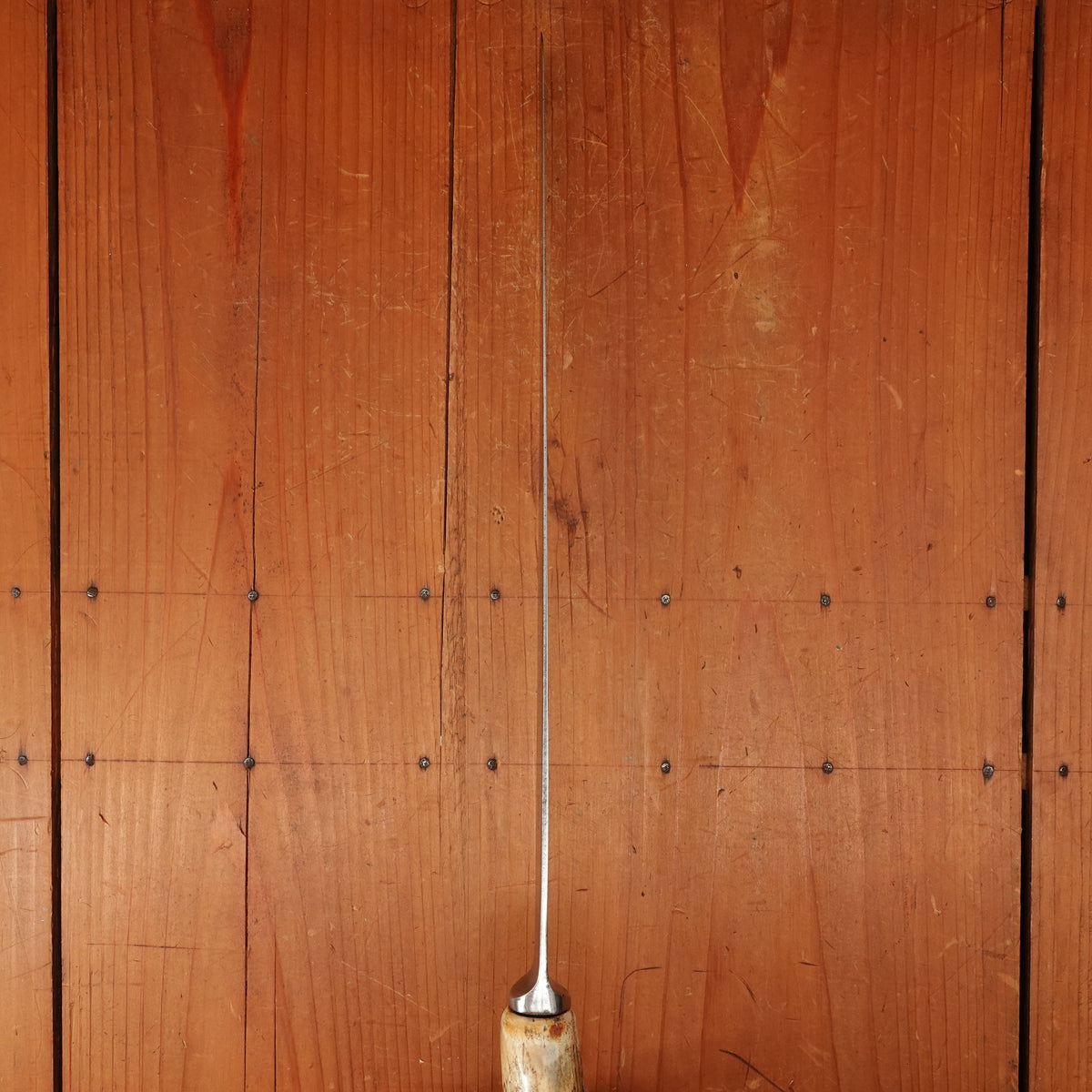
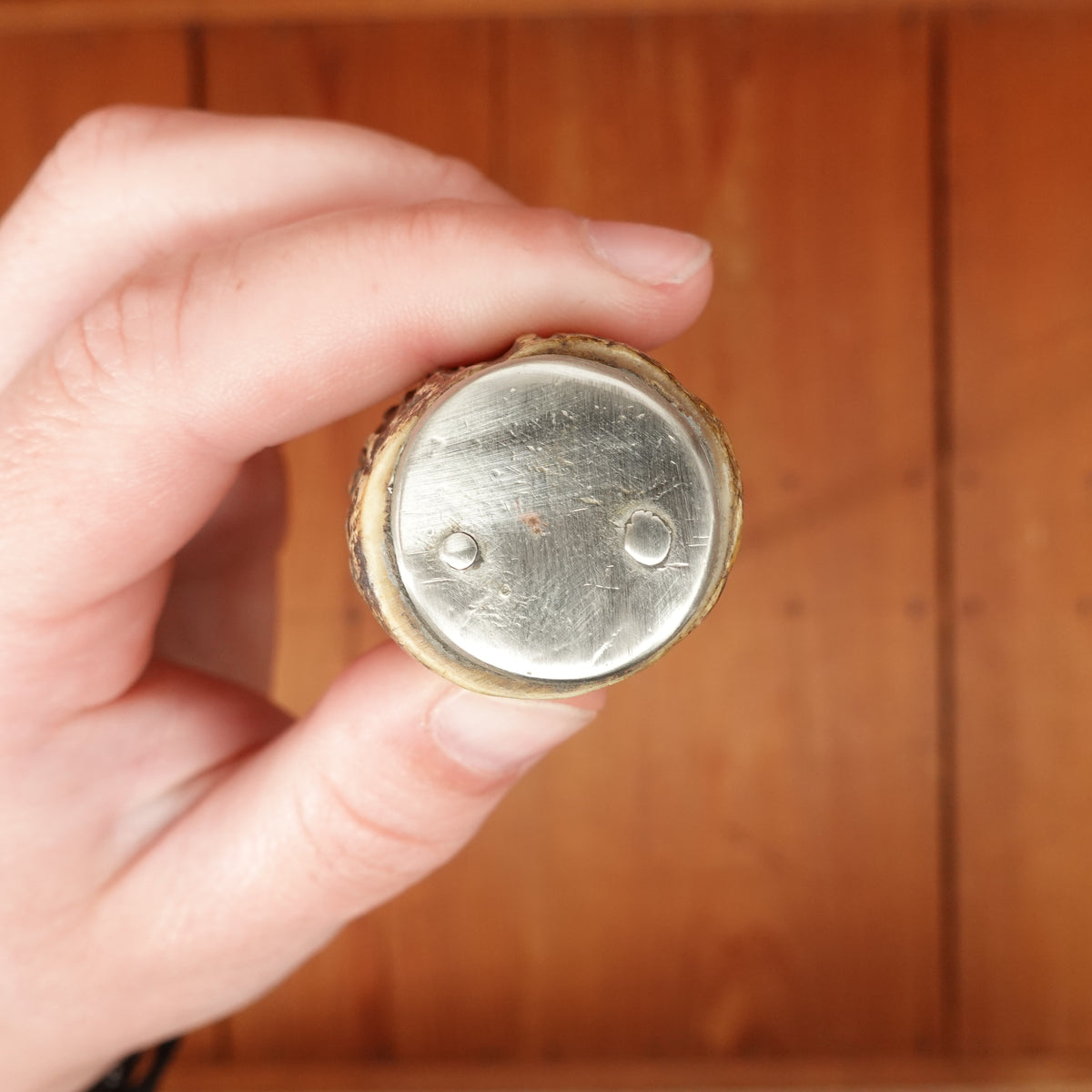
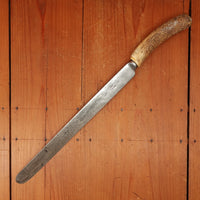
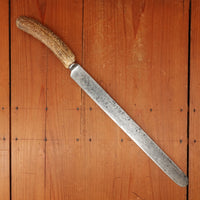
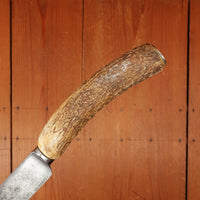
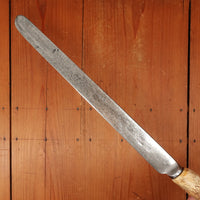
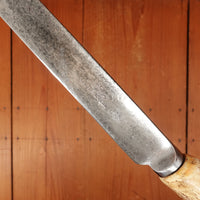
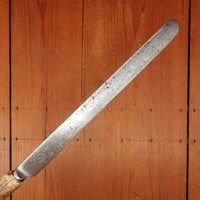
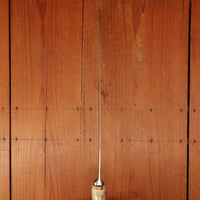
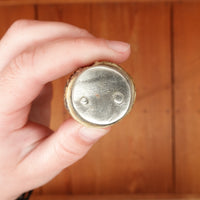
Mappin Webb 12" Roast Beef Slicer Shear Steel & Stag Sheffield 1868-1913
-
Regular Price
-
£149.57
-
Sale Price
-
£149.57
-
Regular Price
-
Sale
Sold Out
-
Unit Price
- /per
- Regular Price
- £149.57
- Sale Price
- £149.57
- Regular Price
- Unit Price
- /per
12" roast beef slicer made by the great Mappin & Webb of Sheffield in the late 19th or early 20th century. A harder pattern to find but a very, very English one, especially as England is the home to roast beef. Forged carbon steel blade is most likely shear steel welded to an iron or mild steel bolster / tang, stag handle and double pinned nickel end cap.
Mappin & Webb was a large Sheffield manufacturer with connection to Sheffiled knife making through the Mappin family to the 18th century. It seems that the company Mappin & Webb was established in 1868 but the M & Trustworthy trade marks registered in 1860. Rival to related Mappin Bros. of Sheffield who sued for use of the name 'Mappin' Mappin and web grew to employ over 450 workers in 1880 and over 1000 in 1913 when they became Mappin & Webb Ltd.
It is a bit difficult to put a precise date to the manufacture of this knife, it has a puddle weld mark on the bolster opposite the marking side but does have the general look of a larger production hand forged Sheffield knife but many of the same techniques and materials were used from the 1860s to early 20th century.
While not marked 'shear steel' it most likely is. it shows a 'puddle weld' near the bolster at the beginning of the blade opposite side as markings, almost looking like a thumbprint, this is where hard shear steel is forge welded to the mild steel or iron bolster and tang. Forks were forged in a small mold and ground by hand and knife blade forged by hand to shape and then hand ground on a saddle grinder to finish the geometry being finished on smaller buffing wheels. Many of these process were in use for hundreds of years in Sheffield which really held its strength through the massive amount of low priced skilled labor available in Sheffield.
Shear steel was a 19th and early 20th century steel that was made by case hardening bars of iron in ceramic boxes packed with charcoal, large numbers of these were heated for days on end at high temperatures and the resulting bars were broken up (it would break or shear rather than bend once carbon added hence 'shear' steel) and forged welded into a larger mass. This process was done twice on double shear steel creating a steel with a higher carbon content.
Never put old carving knives in the dishwasher, they are held together with 'cutler's cement' or 'rozzil' a mixture of brick dust, bees wax and rosin. Rozzil is hard at room temperature but soft and liquid when hot.
About Bernal Cutlery
We are a full-service cutlery shop offering sharpening services, Japanese and Western culinary knives, vintage knives, outdoor, pocket and craft knives, cooking tools and accessories. We also offer knife skills and sharpening classes, and more.
We are proud to serve kitchen professionals, knife enthusiasts and home cooks alike. Located in the Mission District of San Francisco, California.
766 Valencia Street, SF, CA 94110
1 Ferry Building, Ste. 26, SF, CA 94110
